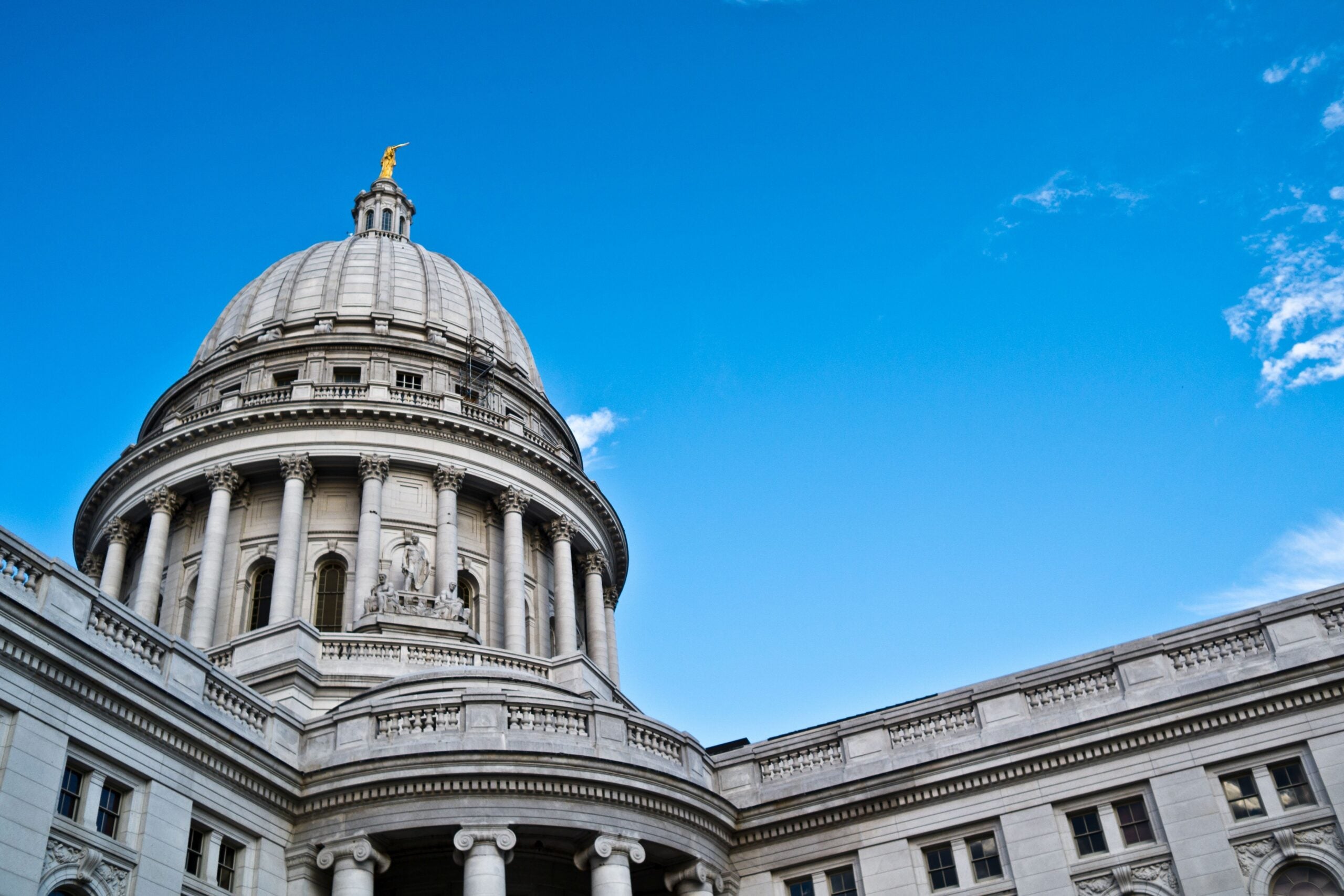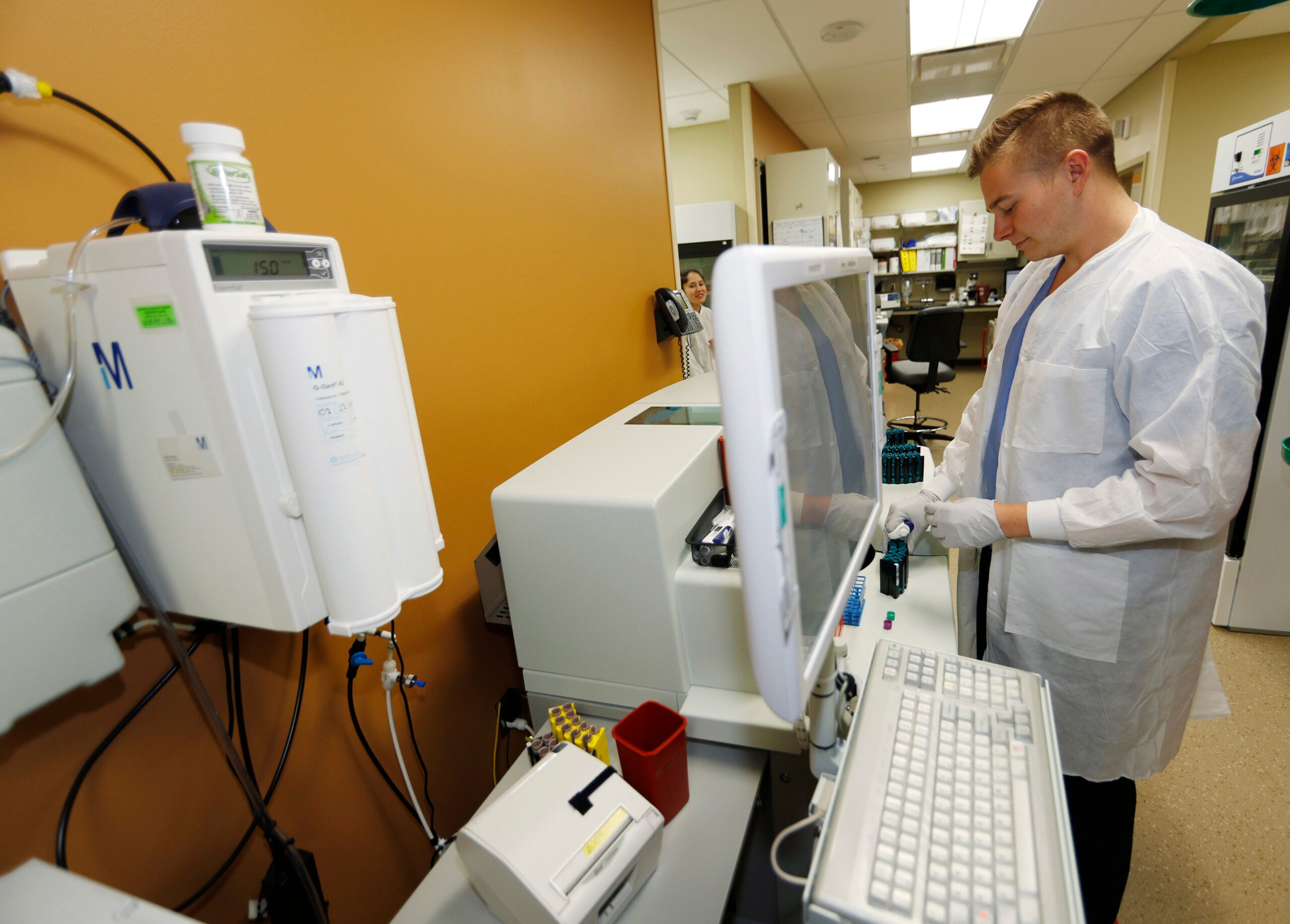State officials will likely face at least a $373 million shortfall in the next state budget, according to a new report from the Wisconsin Policy Forum.
That deficit could grow to more than $1 billion if increased Medicaid expenses are added to the fold and more than $2 billion if the budget accounts for growth in spending on things like schools and prisons.
The report looked at projected tax revenues along with base spending levels for the 2021-23 state budget. It found state spending would exceed estimated revenue by $373.1 million, or about 1 percent of spending over the biennial budget.
Stay informed on the latest news
Sign up for WPR’s email newsletter.
That projection does not include any new funding requests from state agencies or additional spending to address the ongoing COVID-19 pandemic. It also does not include the projected cost of continuing current Medicaid programs, an expense that has grown this year as more people enroll in coverage. The report said the state Department of Health Services has estimated Medicaid will require an additional $1.15 billion over the next two years.
Jason Stein, research director for the Wisconsin Policy Forum, said the state faced similar budget shortfalls in 2011 and 2009.
But unlike previous years, Stein said the state is projected to start with roughly $2 billion in reserves leftover from the current budget.
“Having somewhat better tax revenues than I think we would have expected and somewhat lower spending puts the ongoing budget on a better footing for the next two years than I think we would have expected,” Stein said.
Stein said state lawmakers and the governor are also facing the added challenge of a divided government.
He said Republicans held both the Legislature and the governor’s office during the 2011 shortfall and Democrats held both branches in 2009.
“A year and a half ago, the Legislature and (Gov. Tony Evers) really had pretty substantial challenges reaching an agreement on the budget during what turned out to be some of the best economy and state budget conditions in at least 20 years,” Stein said. “Given that now you’re going to have to do more difficult decisions and fewer easy decisions, it just seems likely that there will be greater challenges.”
Stein said officials will likely use some of the state’s reserves to address the projected shortfall, but they won’t want to use the entire surplus given the continued uncertainty around the pandemic.
He said policymakers could also turn toward cutting spending on state services or raising taxes and fees.
The state could also look to delay payment obligations by restructuring debt or delaying funding for municipalities or schools. Stein said that option would merely “kick the can down the road” and create a larger shortfall for the next budget.
“None of (these options) are particularly attractive. None of these are things that you really set out to do as an elected official,” Stein said. “We’re in difficult times right now and so the state has got to look to what may be unattractive measures.”
Stein said the state could also choose to expand Medicaid services in order to receive additional federal funding through the Affordable Care Act. But he said Republican lawmakers have made it clear in the past that they are unwilling to do so.
The report found additional federal funding could also help to improve the next budget situation, either through direct funding for the state or by improving the general economy.
Wisconsin Public Radio, © Copyright 2025, Board of Regents of the University of Wisconsin System and Wisconsin Educational Communications Board.





